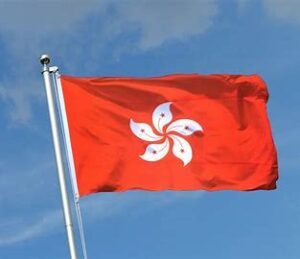
Italy Approves Model for the GloBE Tax Return
On February 6, 2026, the Italian Revenue Agency approved the model for the GloBE tax Return. This is a consolidated form with information on the calculation of top-up tax under the IIR, UTPR and QDMTT.
Investment entities and investment funds are subject to a number of special provisions under the Article 7 of the Pillar Two GloBE rules.
These in part seek to reconcile the domestic tax treatment of these entities with the GloBE rules and ensure that any impact on the top-up tax calculation does not hinder the application of the GloBE rules.
Note that investment entities are frequently not within the scope of the GloBE rules.
This may be because they are the UPE (see more in our Scope analysis) or it may be because they are less likely to have foreign operations or hold controlling interests in foreign subsidiaries.
Where an investment entity is the UPE of an MNE group it is classed as an excluded entity under Article 1.5.1 of the OECD Model Rules. As such no GloBE ETR, top-up tax or obligation to account for tax via an Income Inclusion Rule (IIR) applies.
Note, however, that the revenue of the excluded investment entity is still taken into account for the purposes of the 750 million euros revenue threshold.
In addition, under most accounting standards an exemption is provided so that the MNE group does not include eligible investment entities in the consolidated financial statements:
• Under IFRS 10 investment entities do not consolidate their subsidiaries. Instead, they are measured at fair value through the profit or loss account.
There are a couple of exceptions to this including:
(1) if the subsidiary provided investment advisory services to the investment entity, and;
(2) if the investment entity is owned by another company (a non-investment entity) then it consolidates all subsidiaries including the investment entities and any entities it controls. Non-controlling interests though wouldn’t be consolidated even by the UPE.
• Under ASC 820 investment companies use the fair value accounting method for non-controlling interests in other investment companies.
Generally, most investment funds hold minority (ie non-controlling) interests in their investments and they would not need to consolidate. As such, they would not be included in the MNE group for GloBE purposes.
Even if an investment entity held controlling interests in other entities and therefore was required to consolidate, if those entities met the requirements to be treated as excluded entities then the group would be outside the scope of the GloBE rules.
It should also be noted that many funds are structured as flow-through entities for tax purposes (eg as an English or Delaware limited partnership). They are still subject to the general requirement to consolidate for controlling interests.
However, in many cases, there would not be an element of control or a requirement to consolidate.
For instance, one of the requirements of consolidation under IFRS 10 is that the investor has the ability to affect the amount of the investor’s returns.
If such an entity was included in the consolidated financial statements, its treatment would be as identified below for a tax transparent investment entity (ie generally its GloBE income would flow up the chain to other constituent entities in the MNE group, after a reduction for amounts due to non-group members).
The general process for calculating top-up tax for investment companies under Article 7.4 of the OECD Model Rules is:
1. The top-up tax percentage is determined by deducting the investment entity ETR from the 15% global minimum rate
2. The MNE groups allocable share of the investment entities GloBE income is reduced by the substance-based income exclusion (‘excess profits’)
3. The top-up tax percentage is applied to the excess profits
As noted above, multiple investment entities in a jurisdiction effectively form a separate investment entity group which is subject to a separate jurisdictional ETR calculation.

On February 6, 2026, the Italian Revenue Agency approved the model for the GloBE tax Return. This is a consolidated form with information on the calculation of top-up tax under the IIR, UTPR and QDMTT.

On January 29, 2026, Canada’s Department of Finance released draft GMTA technical amendments introducing an elective private investment entity de-consolidation rule for Pillar Two/GMTA purposes.

On January 30, 2026, Japan’s National Tax Agency issued a law implementation circular clarifying certain aspects of its UTPR and QDMTT.

In January 2026, Canada issued the filing procedures for the GIR, GMT Return and the Double Filing Relief Notification.

On January 19, 2026, South Korea issued a Draft Law to amend the Enforcement Decree to the International Tax Adjustment Act. This provides for detailed provisions for the application of the QDMTT and will also extend the Transitional CbCR Safe Harbour by 1 year (as provided in the January 2026 OECD Side-by-Side Package).

On January 19, 2026, the Hong Kong Inland Revenue Department opened its E-filing portal for the submission of Top-Up Tax Notifications

On December 31, 2025, Israel enacted Law No. Law 5776-2025 on the Minimum Corporate Tax for Multinational Groups. The enacted law contains some significant changes from the previous draft law.

On December 29, 2025, Uruguay’s President issued Decree No. 325/025, to provide for exemptions from the QDMTT for entities covered by a tax stability agreement. Note that Law N° 20446 to enact the QDMTT was published in the Official Gazette on January 8, 2026.

On December 23, 2025, Korea enacted Law number 21215 to implement the 2026 Tax Reform. This includes a QDMTT from January 1, 2026.
| Cookie | Duration | Description |
|---|---|---|
| cookielawinfo-checkbox-analytics | 11 months | This cookie is set by GDPR Cookie Consent plugin. The cookie is used to store the user consent for the cookies in the category "Analytics". |
| cookielawinfo-checkbox-functional | 11 months | The cookie is set by GDPR cookie consent to record the user consent for the cookies in the category "Functional". |
| cookielawinfo-checkbox-necessary | 11 months | This cookie is set by GDPR Cookie Consent plugin. The cookies is used to store the user consent for the cookies in the category "Necessary". |
| cookielawinfo-checkbox-others | 11 months | This cookie is set by GDPR Cookie Consent plugin. The cookie is used to store the user consent for the cookies in the category "Other. |
| cookielawinfo-checkbox-performance | 11 months | This cookie is set by GDPR Cookie Consent plugin. The cookie is used to store the user consent for the cookies in the category "Performance". |
| viewed_cookie_policy | 11 months | The cookie is set by the GDPR Cookie Consent plugin and is used to store whether or not user has consented to the use of cookies. It does not store any personal data. |